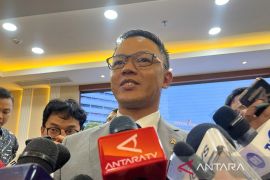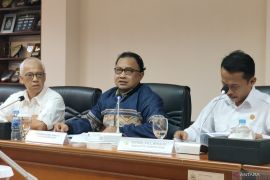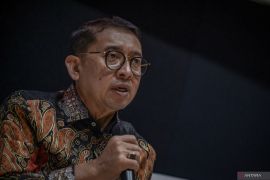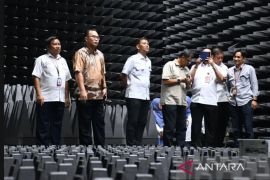A news aggregator serves to solve the problem of overwhelming information that comes our way. It is a solution and a strategy on how we filter information that comes in dailyJakarta (ANTARA) - The journalism and media industry has been through myriad changes in the last decade. From the rise of digital platforms, the emergence of social media and its role in pushing out mass media content, to the surge of false news and disinformation on the very same platform, the industry has had to adapt to them.
Digital platforms and their immediacy have often led to a stream of content, poured out in greater quantity and served up in bite sizes compared to more conventional media platforms such as newspapers and television broadcasts. More recently, the surge of information led to the emergence of content curators and news aggregators, platforms that picked and chose the news stories that are deemed worthy of the consumers’ time amid their hustle and bustle.
18-year-old Sheila said she depended almost solely on Line Today, a news aggregator platform embedded in the social media platform LINE. “We get notifications every day and I believe that they have chosen the most popular news for us to read. If I wanted to find out more (about specific topics), I would go on Google and read more,” she said.
To 27-year-old Wilson, however, getting the news from the media companies themselves is much more preferable. “I just turn on my notifications from the news companies’ apps on my phone. I guess the way it works is similar to news aggregators but I prefer to go on the apps directly,” he said.
The way that Wilson and Sheila are consuming their news paints a picture of how people prefer to have their daily information intake in the digital age, on the tips of their fingers.
Alternatives
Indonesian social media observer, Enda Nasution, believed that news aggregators are providing alternatives to the way people are consuming the news, in the numerous types of information being highlighted in the media.
“A news aggregator serves to solve the problem of overwhelming information that comes our way. It is a solution and a strategy on how we filter information that comes in daily,” Nasution said.
He explained that news aggregators would normally utilize the algorithms from Artificial Intelligence to pull together news stories that are deemed to be most relevant, or stories that are based on the consumers’ preferences, be it politics, technology, lifestyle or other fields.
Aggregators such as Google News, or others often found embedded in smartphone applications, are believed to assist consumers in filtering their news intake. The habit of filtering news consumption, according to Enda Nasution, is not new among consumers.
“Traditionally, these strategies have been done for a long time, for example, by choosing specific newspapers or magazines to read,” he said. In the digital age, consumers often choose to follow the accounts of certain media companies on social media because they trust the products that they put out.
Given these facts, he believed that the essence of services provided by news aggregators is not a novel phenomenon. Media companies have become trusted curators long before their existence.
Independence
Although curating news content has been a part of journalism itself, digital aggregators and curators are somewhat new to the industry. It could raise the question of whether their existence could decrease the independence of consumers when it comes to establishing their own opinions towards certain events or information.
To which Nasution said, "Not necessarily. Consuming the news itself is an act of dependency. We are relying on other people (the reporters, editors, and media companies) to gather information for us, and when we read opinion columns, we are depending on other people, whom we deem as experts and their opinions.”
To ensure that people can still maintain their independence, with or without news aggregators in the picture, he believed that it all came down to the consumers themselves, especially in the day and age where information traffic is ever so busy.
“We have to have the ability to shape our own opinions and to verify the information that is given to us because the source itself may not be free from bias,” he said.
Complacence in consumers and diminishing ability in shaping one’s own opinions could happen with or without reliance towards news aggregators. Consumers should not rely on them, neither should they rely on media companies, to shape establish their mindset on certain issues.
“We need to be as accurate as possible with information, but the consumption needs to be supported by our abilities to compile and filter the most accurate information, and ultimately create our own opinions,” he added. (INE)
Related news: Smartphone alters news consumption behavior among generations
Related news: The "super journalist" is on duty
Editor: Fardah Assegaf
Copyright © ANTARA 2020












